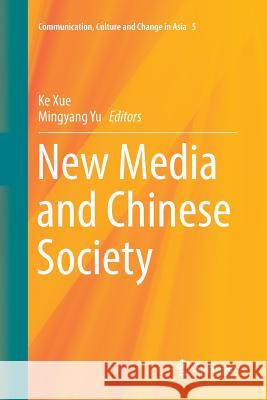New Media and Chinese Society » książka
topmenu
New Media and Chinese Society
ISBN-13: 9789811349355 / Angielski / Miękka / 2018 / 290 str.
Kategorie:
Kategorie BISAC:
Wydawca:
Springer
Seria wydawnicza:
Język:
Angielski
ISBN-13:
9789811349355
Rok wydania:
2018
Wydanie:
Softcover Repri
Ilość stron:
290
Waga:
0.43 kg
Wymiary:
23.39 x 15.6 x 1.65
Oprawa:
Miękka
Wolumenów:
01
Dodatkowe informacje:
Wydanie ilustrowane











